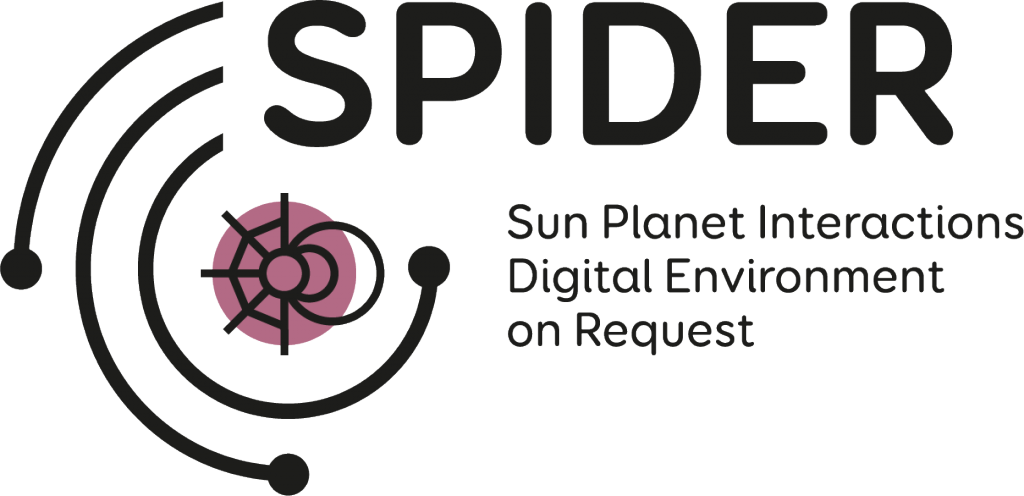SPIDER – Sun Planet Interactions Digital Environment on Request
SPIDER (Sun Planet Interactions Digital Environment on Request) is a unique infrastructure that gives contextual information including predictions and alerts for science data analysis and payload/spacecraft operations.
SPIDER provides European planetary scientists, space agencies and industries access to state of the art services to model planetary environments and solar wind interactions through the deployment of a dedicated run-on-request infrastructure and associated databases.
The runs are archived and shared to the scientific community online and through VESPA.
SPIDER builds on the Europlanet 2020 RI Planetary Space Weather Services, which has attracted 15,000 users from the wider international community to date and includes 12 tools for tracking planetary or solar events through the Solar System to assist researchers and industry planning for space missions. The tools cover prediction, detection, modelling and an alerts service.
About planetary space weather
Space weather – the monitoring and prediction of disturbances in our near-space environment and how they are controlled by the Sun – is now recognised as an important aspect of understanding our Earth and protecting vital assets such as orbiting satellites and power grids.
Planetary space weather is the study of the variability of planetary (or satellite) environments (e.g. atmospheres, exospheres, intrinsic magnetospheres) determined by the variability of the solar activity or/and the interplanetary space dynamics.
Contact:
Nicolas André, Institut de Recherche en Astrophysique et Planétologie, CNRS, Université Paul Sabatier, Toulouse, France.
SPIDER is led by CNRS and Wigner with input from INAF, IRF, ONERA, UCL and the Observatoire de Paris.
Links
Find out more about Europlanet 2024 RI’s other Virtual Access services and tools:
Back to Europlanet 2024 RI Homepage



